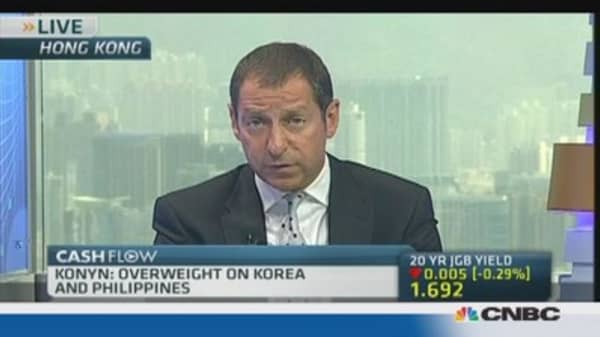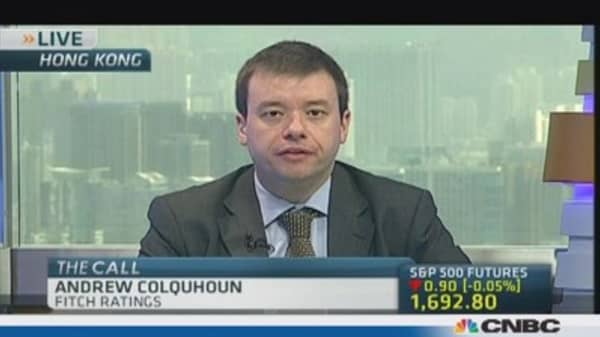A flurry of data out of China on Friday broadly painted an upbeat picture of the world's second largest economy, which appears to be stabilizing after two years of slowing growth.
Government figures showed industrial output jumping 9.7 percent in July from the year ago period, beating a market forecast by Reuters for a 9 percent again, and higher than the 8.9 percent rise in June.
Retail sales rose an annual 13.2 percent in the month, slightly lower than market expectations for a 13.5 percent rise and after a 13.3 percent gain in June.
(Read more: China risks following Japan into economic coma)
Earlier in the day, inflation figures showed consumer prices accelerated in July, but producer prices dipped in the month, showing the manufacturing sector remains entrenched in deflation for a 17th straight month.
China's consumer price index (CPI) rose 2.7 percent in July from a year earlier, unchanged from June, but the producer price index (PPI) fell 2.3 percent in the month from the year before, slightly worse than the 2.2 percent drop markets were expecting.
"The key point is the deflation in the PPI, which speaks to the capacity in industry and that, in turn, reflects one of the structural vulnerabilities in the economy," said Andrew Colquhoun, senior director and head of Asia-Pacific sovereign ratings at Fitch Ratings on CNBC Asia's "The Call."






